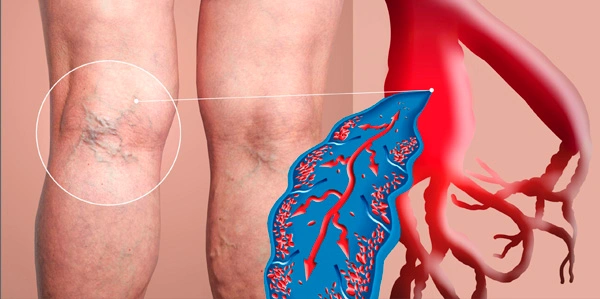Memory genes

If you tested your DNA with a personal genomics service like 23andMe, AncestryDNA, FamilyTreeDNA, MyHeritage or another testing company, you can learn more about your risk factors for hundreds of diseases. By clicking the button above ⬆️, you can upload your raw DNA data file and receive a personalized 250-page health report with research links that is the most comprehensive.
Despite being often overlooked, the brain possesses an impressive ability to restrict the creation and manifestation of memories. In 1998, the phrase "memory suppressor gene" was introduced to account for findings indicating that certain genes had the potential to restrict memory. Initially, only a small number of memory suppressor genes were identified, and their mechanism of action was believed to involve the limitation of cAMP-dependent consolidation. However, over the years, nearly 100 memory suppressor genes with varying functions have been uncovered, impacting not just consolidation but also acquisition and forgetting.
Memory suppressor genes are responsible for limiting memory in a wild-type animal and are comparable to tumor suppressor genes. These genes work to suppress the process of memory formation, storage, or recall. Conversely, memory enhancer genes, such as the NMDA receptor subunit NR2B, increase memory formation when their activity is increased. When overexpressed in the mouse forebrain, NR2B enhances long-term memory in various tasks, including fear conditioning, novel object recognition, and Morris water maze performance, along with increased hippocampal long-term potentiation. Conversely, reducing the NR2B subunit impairs spatial memory and LTP.
Memory suppressor molecules, such as repressors of CREB like ApCREB2 in Aplysia, were identified as early as possible. When anti-ApCREB2 antiserum is injected into Aplysia's sensory neurons to inhibit ApCREB2 activity, long-term facilitation (LTF) can be formed after only one application of serotonin, whereas LTF is typically produced only with multiple applications of serotonin. Therefore, ApCREB2 represses CREB function and suppresses the formation of LTF. Studies on CREB repressors, such as ATF4 in mice, provide evidence across species that negative regulators of CREB function as memory suppressor molecules.
New findings suggest a connection between the mammalian dopaminergic system and memory loss. When a D1DA receptor antagonist is injected into the rat hippocampus after training, it improves the memory of food and cocaine-place conditioning after 7 days. This suggests that the D1 receptor may be responsible for memory loss in mammals. Recent research has also examined the impact of rat D1 receptors on retrieval-induced forgetting, which occurs when recalling a memory causes other related memories to be forgotten.
So far, studies on memory suppressors have shown that they affect all aspects of memory that have been tested, including acquisition, consolidation, and forgetting. This framework can guide future research in this area.
Follow the link of the selected polymorphism to read a brief description of how the selected polymorphism affects Memory and see a list of existing studies.
SNP polymorphisms related to the topic Memory:
| rs6314 | The serotonin receptor gene HTR2A polymorphism is associated with bipolar affective disorder and autism spectrum disorder. |
| rs2075650 | The rs2075650 polymorphism of the TOMM40 gene contributes to the development of Alzheimer's disease and frontal temporal dementia in Caucasian and Asian populations. |
| rs17070145 | The KIBRA gene variant is associated with episodic memory in healthy older adults. Carriers of the KIBRA rs17070145 T allele had 24% better performance on random recall 5 minutes after word presentation and 19% better performance on random recall 24 hours after word presentation than non-carriers. |
| rs6902875 | A common 6q24 genetic variant associated with exceptional episodic memory performance in older adults. |
| rs9321334 | A common 6q24 genetic variant associated with exceptional episodic memory performance in older adults. |
| rs10884402 | |
| rs7078098 | |
| rs950809 | |
| rs8067235 | |
| rs1997794 | |
| rs2235751 | |
| rs7272891 | |
| rs12807809 | |
| rs425724 | |
| rs1493445 | |
| rs9528369 | |
| rs347702 | |
| rs3749622 | |
| rs447505 | |
| rs797311 | |
| rs1486844 | |
| rs347713 | |
| rs9528371 | |
| rs1386320 | |
| rs9528370 | |
| rs9539264 | |
| rs446427 | |
| rs427203 | |
| rs9528358 | |
| rs7319943 | |
| rs9528377 | |
| rs11148561 | |
| rs67017972 | |
| rs7164861 | |
| rs78096325 | |
| rs2900031 | |
| rs157582 | |
About The Author
Li DaliLi Dali, a National Foundation for Outstanding Youth Fund recipient, is a researcher at the School of Life Sciences in East China Normal University. He earned his PhD in genetics from Hunan Normal University in 2007 and conducted collaborative research at Texas A&M University during his doctoral studies. Li Dali and his team have optimized and innovated gene editing technology, leading to the establishment of a world-class system for constructing gene editing disease models.


